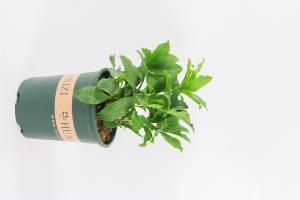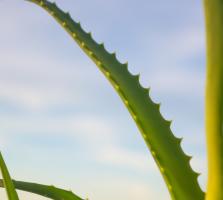Will Chlorine Pool Water Kill Plants?
Many homeowners with pools often wonder whether or not they can reuse their pool water to keep their garden or plants hydrated. One of the main concerns is whether or not the chlorine in the pool water will harm the plants. In this article, we will explore whether or not chlorine pool water will kill plants and the best practices for using pool water on plants.
What is Chlorine and How Does it Affect Plants?
Chlorine is a chemical disinfectant commonly used in swimming pools to kill bacteria and germs. Chlorine belongs to the halogen family and is highly reactive with other elements. When chlorine is added to pool water, it reacts with organic matter such as sweat, oils, and bacteria to form chloramines - compounds that produce the odor associated with chlorine pools.
When chlorinated pool water is used on plants, the chlorine can cause damage to the plant's leaves and roots. Chlorine causes the plant's tissue to dry out, leading to stunted growth, yellowing leaves, and ultimately, death. In addition, chlorine can also alter the pH balance of soil, making it more acidic and damaging plant roots.
How to Safely Use Pool Water on Plants
Despite the potential harm of chlorine pool water on plants, it is possible to use pool water to nourish and hydrate plants. One of the best practices for using pool water on plants is to dilute the pool water with fresh, clean water. By diluting the pool water with up to ten parts fresh water to one part pool water, you can significantly reduce the chlorine concentration and pH level.
Another way to ensure that your plants are not harmed by pool water is to water them with a hose or irrigation system that does not spray water on the leaves. By watering directly into the soil, you can avoid exposing the plant's leaves to the chlorine in the water.
Testing the pH and Chlorine Levels
It is important to test the pH and chlorine levels in your pool water before using it on plants. You can use a pool water testing kit to check the pH and chlorine levels. The ideal pH level for plants is between 6.0 and 7.0, while the recommended chlorine level in pool water is between 1.0 and 3.0 ppm for residential pools.
If the pH and chlorine levels are too high in your pool water, you can use pH-minus or chlorine-neutralizing chemicals to bring the levels down. However, it is recommended that you do not use these chemicals on plants or soil. Instead, it is best to wait until the levels have naturally decreased before using the water on your plants.
Conclusion
Overall, chlorine pool water has the potential to harm plants when used directly. However, by diluting the pool water with fresh water, watering directly into the soil, and testing the pH and chlorine levels, you can greatly reduce the risk of harm to your garden or plants. It is important to follow best practices to ensure that your plants remain healthy and vibrant when using pool water on them.

 how many times do yo...
how many times do yo... how many planted tre...
how many planted tre... how many pine trees ...
how many pine trees ... how many pecan trees...
how many pecan trees... how many plants comp...
how many plants comp... how many plants can ...
how many plants can ... how many plants and ...
how many plants and ... how many pepper plan...
how many pepper plan...
































